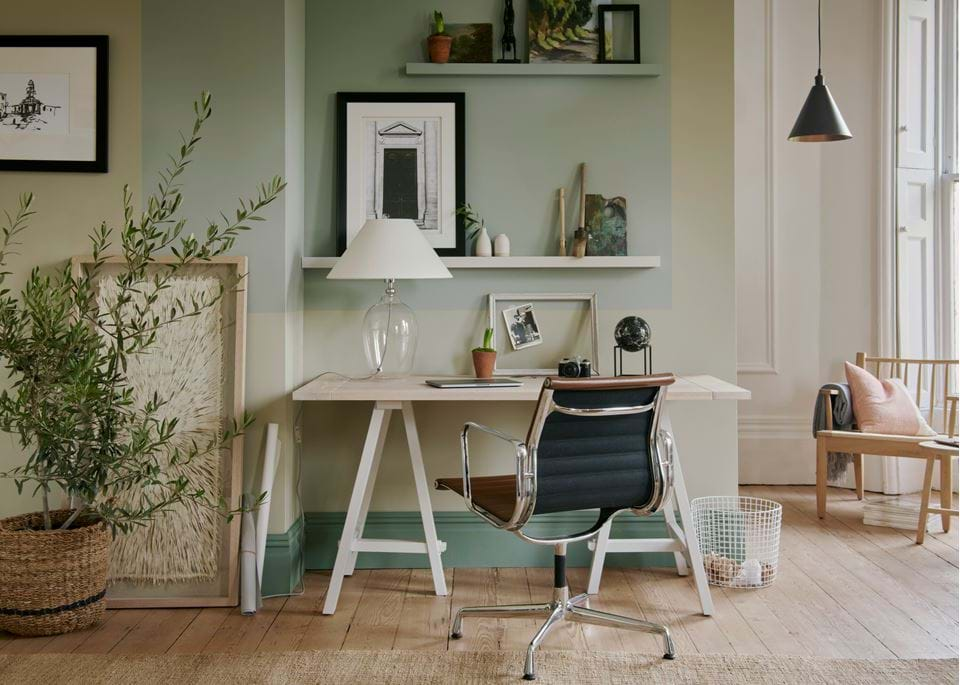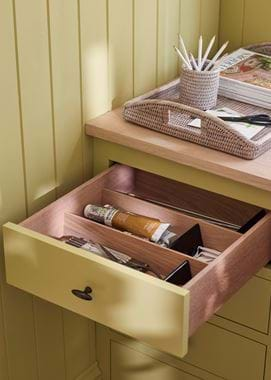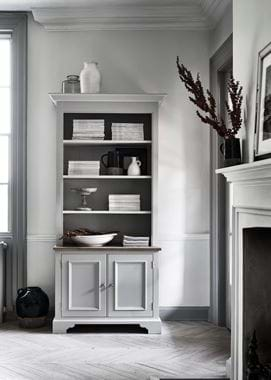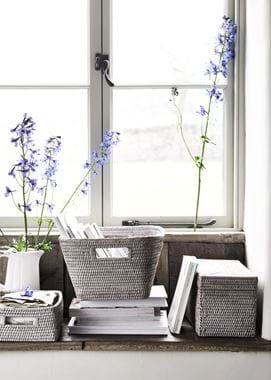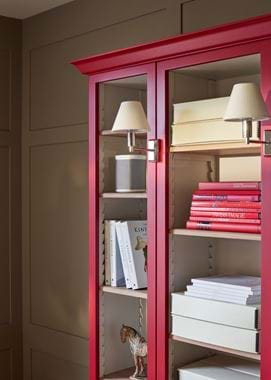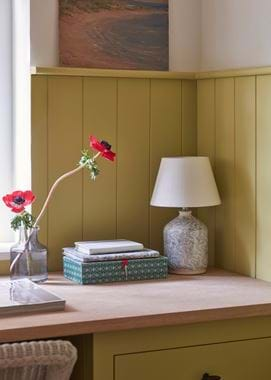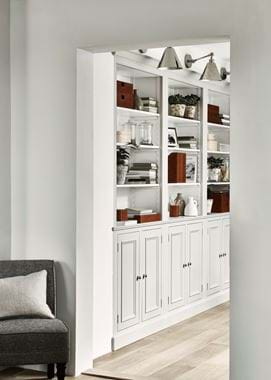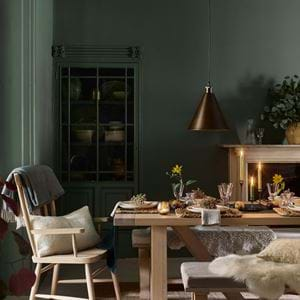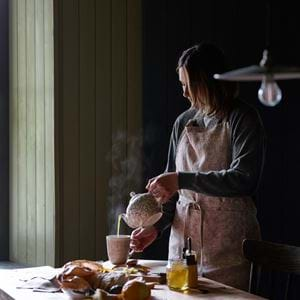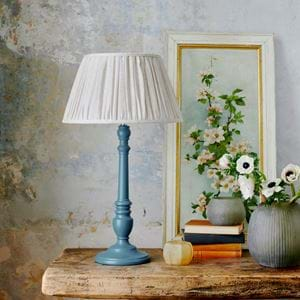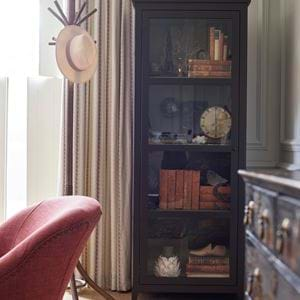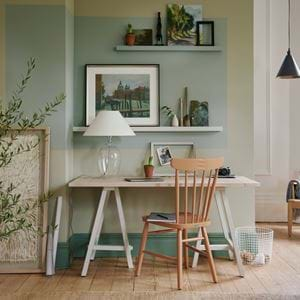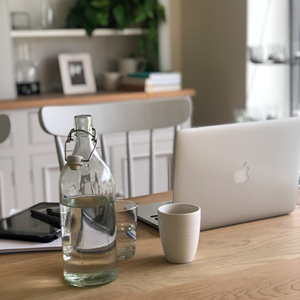How to organise and file, elegantly
How to organise and file, elegantly
You don’t need to have a dedicated home office – or even to actually do any work from home – to know that things like letters, pens and cables can have a mind of their own. Whether they’re currently taking over your desk or your kitchen, it pays to put a little thought into how they’re organised so your home feels less cluttered, so they’re easy to find when you need them, and so this corner of your home doesn’t feel like a corporate one. Which is where these practical – and elegant – storage solutions come in.
Fitted or freestanding
First things first, you need to decide whether you’re looking at fitted or freestanding storage furniture – or whether, in fact, you need any additional furniture at all. This will largely depend on how much you need to organise and where you’re doing it. If it’s just a few bits of household paperwork that you need to file away, you can probably find room for these in a kitchen cupboard or living room bookcase, so you can skip to the next bit about small scale organisation. But, if there’s just no room, or we’re talking about a much larger home office stash, then a dedicated storage space will be in order.
Freestanding is the easiest, quickest solution, and it’s an opportunity to add an interesting furniture design to your room too. A sideboard or a bookcase with an enclosed lower section (like this Chichester design) is perfect. In either case, you’ll have the opportunity to display prettier objects or books on top (or on the upper shelves), while hiding the less attractive things inside.
Fitted furniture might be something worth considering if you want a truly bespoke storage solution, or if you’re trying to maximise a small space. It’s often possible to box-out walls in rooms, creating a deeper cavity into which you can build flush-fitting cupboards or recessed shelves (using our Pembroke, for instance). This works especially well on outside walls as it’ll recess the window, thus creating a window seat, and you can also do it in hallways to make the most of these often underused spaces. It’s a bigger job, and one you’ll probably need a builder for, but you may feel it’s worth it.
Baskets, baskets and more baskets
So much nicer than the plastic boxes often found in home offices, there’s a basket for almost any job, and you should utilise them wherever you can. You can get small, tray-like baskets suitable for corralling things like paperclips, pens and elastic bands on your desk (in fact, any collection of small objects placed inside a tray will feel instantly less bitty), and larger basket trays to hold paper pads or incoming and outgoing mail. Higher-sided baskets will then house computer cables, to-be-shredded documents and (particularly useful if you share your space with little ones) art supplies. We’d even suggest that you use baskets inside cupboards too. Although you might think that, as it’s not on display, you don’t need to worry about what storage looks like inside a cupboard, but don’t underestimate how much lovelier it is to open the doors to design that considered form as well as function. Even drawers can benefit from a shallow basket or two.
Don’t forget to label
As organised as your storage is, it isn’t going to be much use if you can’t remember which box or basket to look in. And, although a label maker can be a wonderful thing, we think there are nicer ways to signpost than simply printing and sticking.
On a basket, we often favour luggage tags tied around the handle or, if yours is handleless, looped through the weave. Old-fashioned paper parcel tags will do just fine, and work well in both traditional and minimal interiors, but you could also cut labels out of patterned paper and thread them with ribbon to match your colour scheme. If you really want to push the boat out, use actual leather luggage tags, which have the added advantage of being reusable.
Then, on magazine files and lever-arch folders (which, by the way, can also be pretty. Cambridge Imprint and Harris & Jones both have attractive examples), use a metal label holder such as these brass ones from Midori. These can be fixed onto the fronts of shelves or cupboard doors too, so baskets can be returned to the right place, while on drawers you could use a handle with a built-in label holder (like our Barlow cup hasp handles, which are available to add on to any piece of Neptune furniture or cabinetry – just get in touch and we’ll add them to your order).
